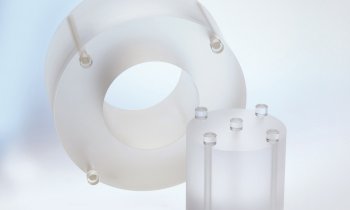Proton Adaptive Therapy
IBA to open the path towards adaptive proton therapy
IBA (Ion Beam Applications) today unveils its unique platform, 'Leading the PATh', which gathers the leading experts in the field of proton therapy all in one place. It is anticipated that 'Leading the PATh' will enable the worldwide medical community to shape the most efficient Proton Adaptive Therapy (PATh), a proton therapy process which improves the accuracy of what is considered to be the most precise cancer treatment available today.
The platform www.leadingthepath.org will enable physicians, physicists, academics, researchers, industry experts, patient association advocates and policymakers from all over the world to exchange experiences, discuss best practices and enhance knowledge, to improve the next generation of proton therapy treatment.
This platform also includes access to a research software platform. This software will be distributed under an open-source license to foster creativity and innovation within the proton therapy community. In addition, users will be invited to access and test a software application that proposes a new example of proton adaptive workflow.
Damien Bertrand, Strategic Partnerships Coordinator, says: “Open-mindedness and willingness to foster collaboration across the medical community has always been part of IBA’s DNA. Sharing expertise and best practice will help the community win the fight against cancer. We are very proud to be part of this one-of-a-kind mobilization, and we remain determined to help our clinical partners alleviate the burden of the patients who are the center of our attention at all times.”
Gery Gevers, Vice-president Research & Development, says: “With over 50% of the market share, IBA already serves the largest User Community in proton therapy. We firmly intend to continue our work to provide access to the best cancer treatment to as many patients as possible. Adaptive Proton Therapy should contribute significantly to the goal of treating the 20% of radiation patients who could benefit from proton therapy, rather than the 1% who are currently being treated.”
Source: IBA
27.09.2016











